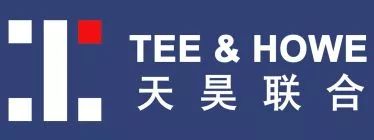- within Food, Drugs, Healthcare and Life Sciences topic(s)
- in United Kingdom
- within Technology topic(s)
- with Inhouse Counsel
- with readers working within the Retail & Leisure industries
Thanks to the heads up from Aaron Wininger, on 19 March 2025, the China National Medical Products Administration (NMPA) announced the draft Implementation Measures for Drug Trial Data Protection (IM), and their procedures at the link below:
https://www.nmpa.gov.cn/xxgk/zhqyj/zhqyjyp/20250319181537196.html?type=pc&m=
The deadline to provide comments is 18 May 2025 (the NMPA is much more generous on the comment deadline than the CNIPA, at least for this instance). The above link said that comments are to be included in the Excel files available at the link above, but I tried downloading several times and the Excel files are broken. If someone could open these Excel files, please let me know. In any event, I am sure that the NMPA would accept comments in other forms, like a letter.
The machine English translations of the draft IM and the procedures should be readily accessible.
While such is termed "drug trial data protection" in China, the equivalent term in the US is (clinical trial) "data exclusivity". I will use the shorter term "data exclusivity" from this point onwards, and "data" below refers to clinical trial data.
While the 2019 Implementation Regulations of the China Drug Administration Law provides data exclusivity ( https://www.nmpa.gov.cn/xxgk/fgwj/flxzhfg/20230328161255114.html, article 34, 6 years for new chemical drug), the relevant protection mechanism has been hanging in the air since then until now.
As always, any comments and thoughts are welcomed. Below are my points to note, mixed with my views, questions, and suggestions.
Draft IM
- Article 3
1) The maximum data exclusivity is 6 years, with further restrictions and conditions, starting from the date of the grant of the drug marketing approval (DMA) (articles 5 and 6).
2) Specifies that data obtained by the generic applicant itself independently would be allowed.
3) In the case of b), "data exclusivity will no longer be provided, but the data shall not be relied upon by other subsequent applicants." It is not clear what data the above is referring to - the data from the original holder, or the data independently provided by the generic applicant? I believe "data" above refers to that provided by the generic applicant independently, and therefore suggest revising the above to "data exclusivity will not be provided to data obtained by other applicants independently, but the data obtained by other applicants independently shall not be relied upon by other subsequent applicants."
- Article 4
- Data exclusivity is only available to "undisclosed" data used in the complete DMA application for the first time in China, while subsequent data after obtaining the DMA will not be protected. Two issues:
1) What is the meaning of "undisclosed"? Is it limited to only disclosure in China, or anywhere in the world? I am not familiar with DMA application procedures, and will be grateful for education on whether such clinical trial is necessarily disclosed in this process in other jurisdictions, say the US and Europe, resulting in the failure to fulfill this requirement in China.
2) Regarding "complete DMA application for the first time in China", for example, if the first application failed due to whatever reason, and then a subsequent application is filed, this subsequent application would not enjoy data exclusivity. As such, I suggest revising this to "the first successful DMA application in China".
- Article 5
1) Innovative drug has a maximum of 6-years data exclusivity, minus the time when this innovative drug receives DMA outside of China. It appears that the intention here is directed to the same innovative drug, but there is one question – what is the meaning of the same innovative drug? Specifically, would difference in dosage, strength, and/or formulation "restart" data exclusivity? I believe the NMPA's intention is not to allow this "restart", but it may be necessary to define this more carefully in the IM, for example by definition of the active pharmaceutical ingredient API. See Article 6 below.
2) For an innovative drug (under the same DMA approval number) with multiple indications, each indication will have independent data exclusivity. My question is, is it typical to have the exact same drug (exact same dosage, strength, and formulation) for different indications?
- Article 6
1) Improved new drug has a maximum of 3-years data exclusivity, minus the time when this improved new drug receives DMA outside of China.
2) The definition of improved new drug appears to be based on the API ("has significant clinical advantages over drugs with known active ingredients (marketed biological products)"), but improved bioavailability, bioequivalence and vaccine immunogenicity data do not count.
- Chemical and biological drugs both can enjoy data exclusivity protection according to articles 5 and 6.
- Data exclusivity has to be applied with the DMA application simultaneously (article 8, do not miss it), and will be indicated in the DMA approval (article 9).
- One year before the data exclusivity ends, generic applicants could start their generic DMA application relying on the data (article 11).
Draft procedures
- When applying for data exclusivity at the DMA application, for drugs having foreign DMA, it is necessary to also provide date of the foreign DMA (article 3). However, it should not be unusual that parallel DMA applications are being applied worldwide, and foreign DMAs are still pending and then granted after the China DMA application is filed. Therefore, I suggest revising this to "For overseas-listed drugs applying for domestic marketing, the applicant must submit documents proving the date on which the drug first obtained marketing authorization overseas, or the information on applications of marketing authorization overseas."
- While third party opinion against the data exclusivity protection could be submitted (article 5), if the NMPA decides to refuse such protection, the procedures have no means for the applicant to provide any arguments and/or feedback against such refusal. I suggest including a mechanism allowing the applicant to provide arguments and/or feedback in the procedures.
- Generic application for drugs with data exclusivity protection will be suspended (article 10), and restarts 14 days before the expiry of the data exclusivity protection (article 11).
Toby's observations
While the 2019 Implementation Regulations of the China Drug Administration Law only provides data exclusivity to new chemical drug, the current IM is more generous to expand such protection to biologics (including vaccines) and improved drugs. While this is welcoming news to pharmaceutical companies, my concern is whether such discrepancies between the IM and the 2019 Implementation Regulations of the China Drug Administration Law would result in subsequent legal challenges against data exclusivity to biologics and improved drugs.
By contrast to various types of data exclusivity protections in the US from 180 days to 7 years (see https://www.fda.gov/drugs/development-approval-process-drugs/frequently-asked-questions-patents-and-exclusivity#What_is_the_difference_between_patents_a), China only divides data exclusivity protections into two types – new (6 years) or improved (3 years) drugs, minus the time when the drug receives DMA outside of China. While this makes things much simpler in China, the downside is specific needs, like orphan drug, will not be taken care of.
The content of this article is intended to provide a general guide to the subject matter. Specialist advice should be sought about your specific circumstances.


